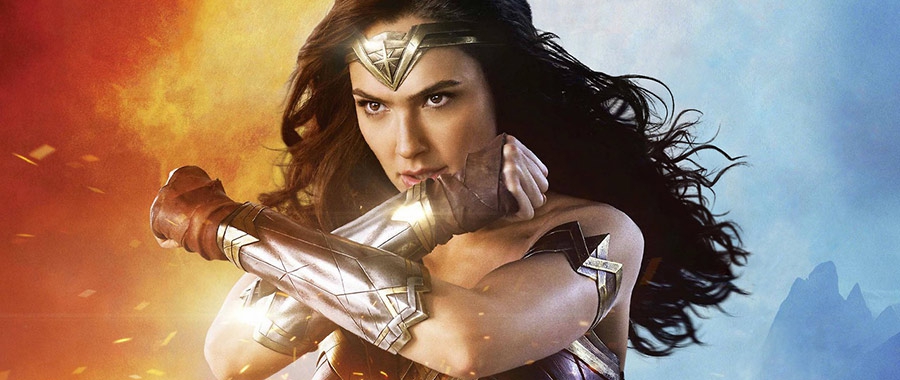The views expressed in our content reflect individual perspectives and do not represent the authoritative views of the Baha'i Faith.
So I’m a little behind, but I watched the film Wonder Woman–Rise of the Warrior a couple of weeks ago.
Admittedly, I try to stay away from violent films for my own peace of mind. However, I did eventually watch it because I wanted to delve more deeply into how and why an increasing number of movies are portraying women in warrior roles. There’s a long and growing list … from older films like the Hunger Games to the more recent miniseries Godless on Netflix.
In the Wonder Woman film, a part of me was pleasantly surprised that one of the main messages of the film was that Diana (the heroine) recognized and honored humanity’s capacity to love. But, then again, she herself killed and hurt many people in the process of achieving her mission. One could argue that it was just a classic, cartoonish “good guys” vs. “bad guys” tale, but it still prompted reflection on current societal messages about women and the qualities they bring to the world.
Judging by our media landscape, for women to take on masculine models of brute force seems to be the order of the day. Some would argue that is equality, but, in a bigger picture and historical sense, I don’t see it that way. As another writer here at BahaiTeachings.org (Dr. Roya Akhavan) notes, the “glorification of masculine warrior values” is one among several root causes of war. If that is true, then how can women change this ruinous narrative and really “save the world?”
In his visit to the United States and Canada in 1912, Abdu’l-Baha set his sights high for women:
Therefore, strive to show in the human world that women are most capable and efficient, that their hearts are more tender and susceptible than the hearts of men, that they are more philanthropic and responsive toward the needy and suffering, that they are inflexibly opposed to war and are lovers of peace. Strive that the ideal of international peace may become realized through the efforts of womankind, for man is more inclined to war than woman, and a real evidence of woman’s superiority will be her service and efficiency in the establishment of universal peace. – The Promulgation of Universal Peace, p. 284.
Perhaps we see or hear less about these noble qualities today because of the ascendancy of a masculine culture focused on power and competition. As an assertive Western woman, I probably have absorbed more masculine then feminine traits, but I also value the role of peacemakers and look to that as my “gold standard.”
There are several passages in the Baha’i writings noting that women will be a great force for peace, given that future mothers will no longer condone sacrificing their sons to battle. There are multiple passages, like the one above, that address women’s superior qualities of mind and heart. Others advise women to pursue professions that will aid humanity:
The realities of things have been revealed in this radiant century, and that which is true must come to the surface. Among these realities is the principle of the equality of man and woman—equal rights and prerogatives in all things appertaining to humanity. Baha’u’llah declared this reality over 50 years ago. But while this principle of equality is true, it is likewise true that woman must prove her capacity and aptitude, must show forth the evidences of equality. She must become proficient in the arts and sciences and prove by her accomplishments that her abilities and powers have merely been latent. Demonstrations of force … are neither becoming nor effective in the cause of womanhood and equality. Woman must especially devote her energies and abilities toward the industrial and agricultural sciences, seeking to assist mankind in that which is most needful. By this means she will demonstrate capability and ensure recognition of equality in the social and economic equation. – Ibid., pp. 283–284.
Shortly after these talks were given, and as World War I broke out in Europe, women who had been involved in suffrage and other social reforms directed their energy to a powerful peace movement. The first women winners of the Noble Peace Prize were Baroness Bertha von Suttner, Jane Addams, and Emily Green Balch–all radical champions for disarmament and peace. Of course, none of these women operated alone. There were many others standing behind them who formed a mass of public opinion against the war.
As many of today’s world leaders (mostly male) build up arsenals of destruction, maybe we need similar and far more “Women Warriors for Peace.” That story line may not bring big box office returns today, but it just may be the key to our survival.
















Comments
Sign in or create an account
Continue with Googleor